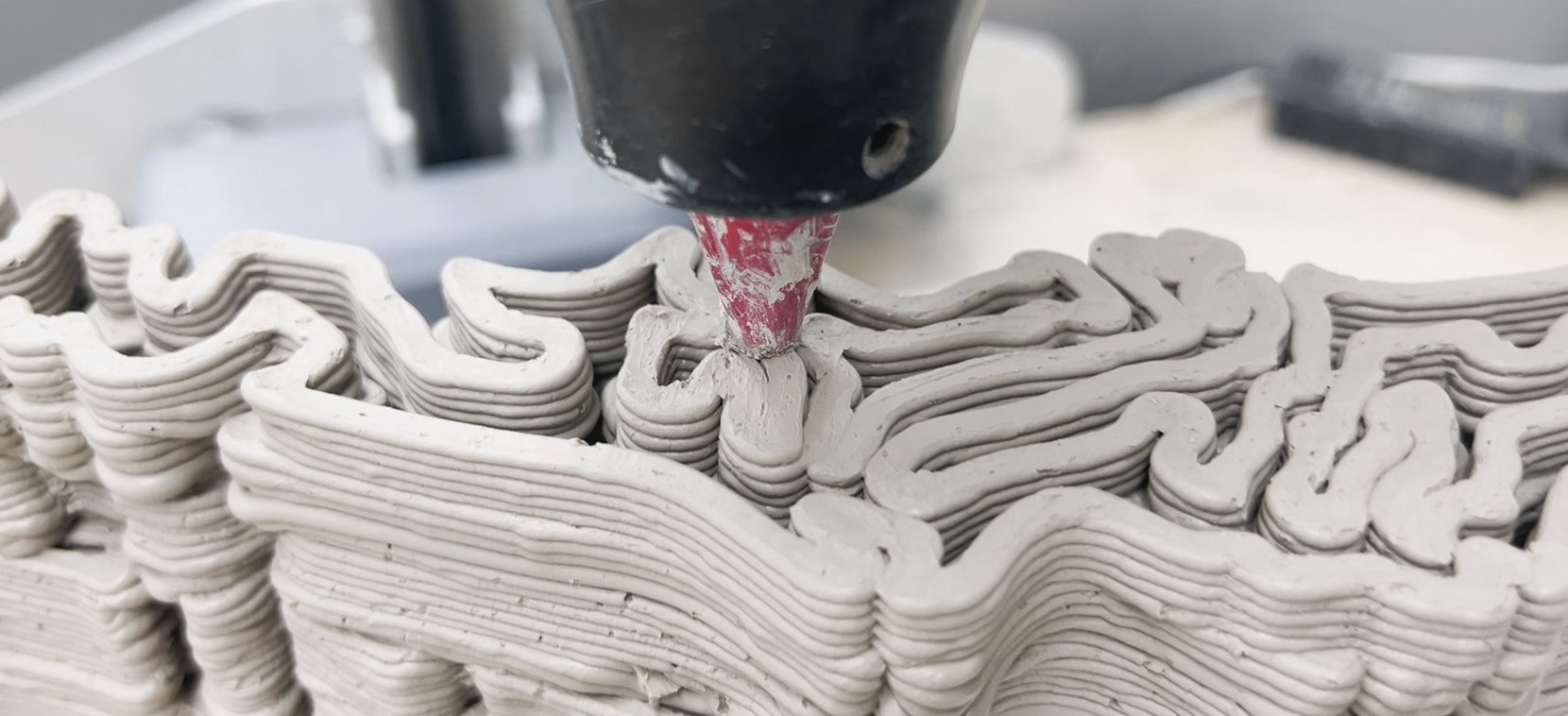
How might emergent space-filling computational methodologies generate adaptive architecture in Chinese rural area
Master’s Thesis for M.S Matter Design Computation program
[DATE] Jan 2023 - May 2024
[INSTRUCTOR] Prof. Jenny Sabin, Prof. Leslie Lok
[Project Type] Individual project
P.S. The GrowFill algorithm has been published in a paper; refer to the publications section for more details.
[Abstract] This thesis explores computational design strategies to revitalize adaptive vernacular architecture in rural China, addressing cultural erosion from modern construction. It introduces GrowFill and TopoWood, two bespoke algorithms optimizing structures with local materials—earth and wood—through a multi-material, performance-driven system.
GrowFill optimizes 3D-printed earth walls, enhancing structural integrity while minimizing material waste. TopoWood refines traditional timber frameworks, aligning wood placement with stress lines for efficiency and greater spanning capabilities. Both leverage topology optimization, validated through PLA and clay printing prototypes.
This approach preserves architectural diversity, reduces environmental impact, and supports local craftsmanship. The thesis acknowledges current algorithmic limitations and suggests future research into 3D optimization and large-scale applications.






